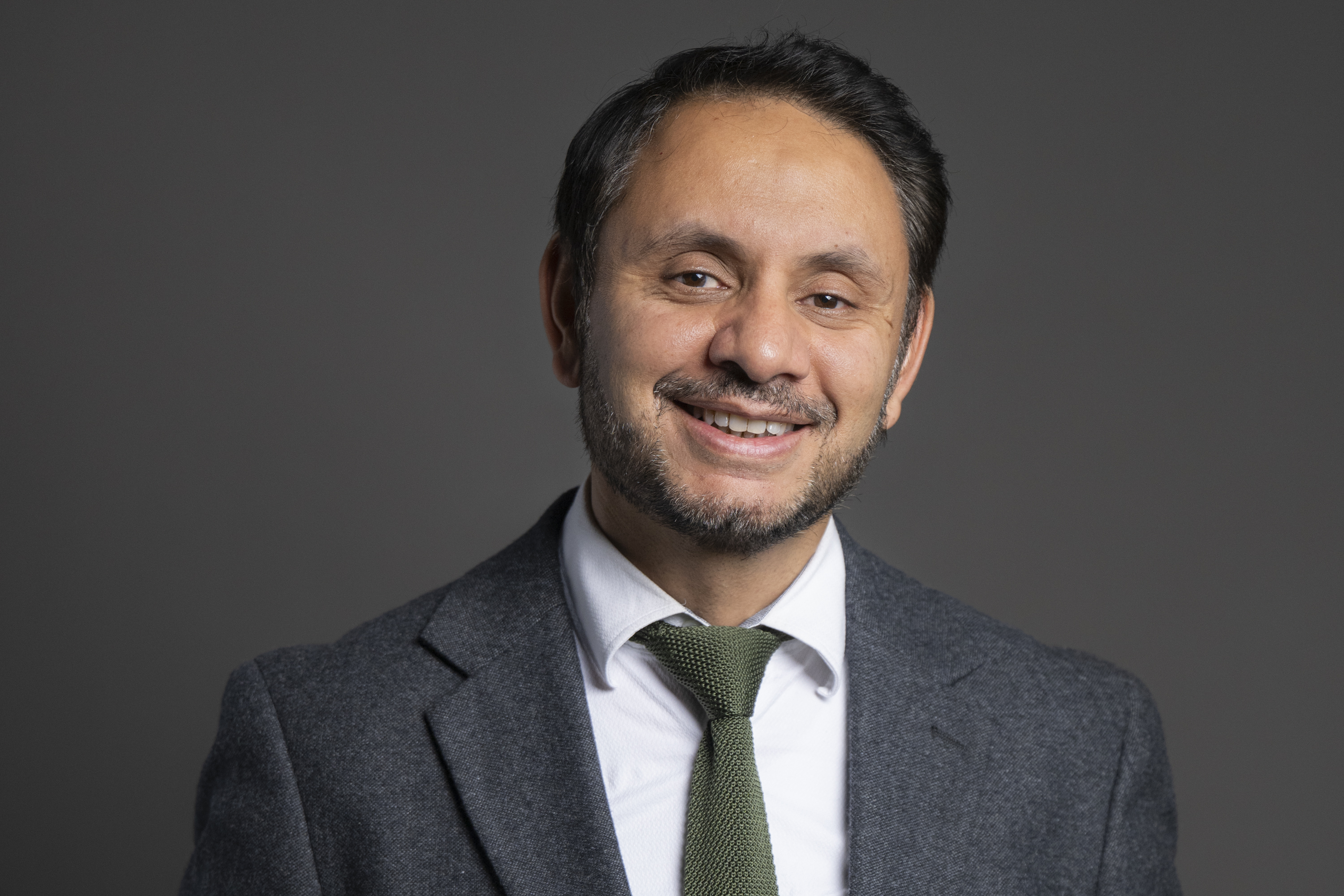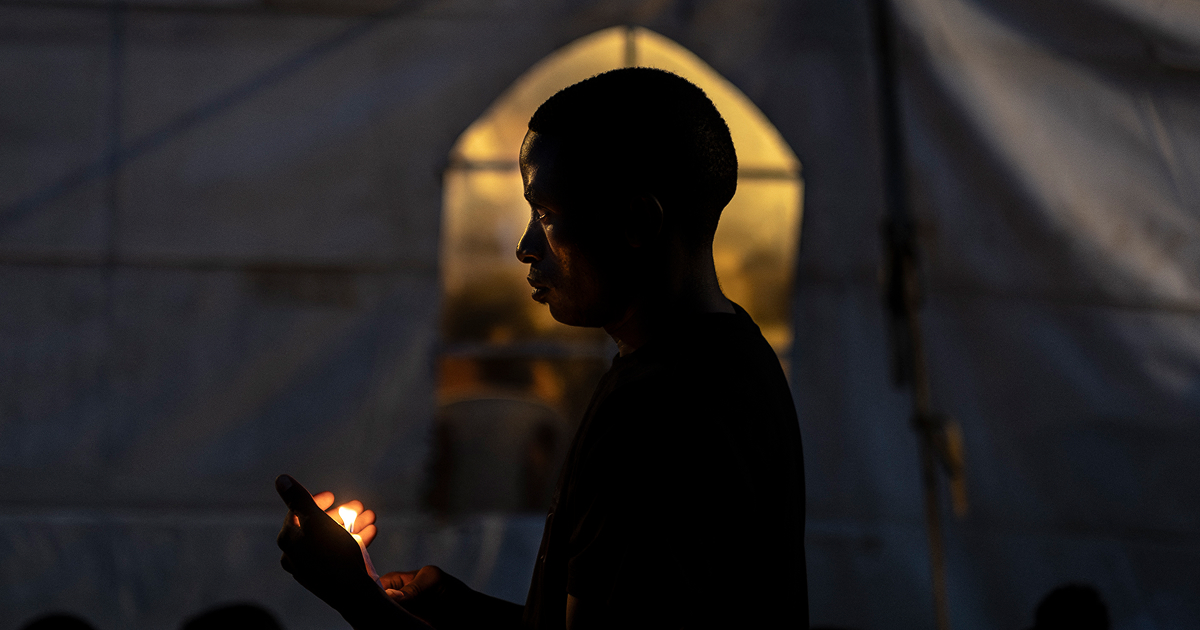A Muslim parliamentarian in the UK has said support from the Catholic Church for Palestinians in Gaza is “extremely powerful”, while also praising the late Pope Francis for taking a stand on the issue.
Shockat Adam, the Member of Parliament for Leicester South, who was elected in 2024 as an Independent, has said that the Holy See has been a key ally in supporting Palestinians during their plight in Gaza.
“The Vatican has been doing it, but other Christian denominations and even Muslim leaders haven’t been as vociferous and clear on this,” Adam told Crux, the Rome-based Catholic news agency.
“The Vatican has a role to play, [it is playing] a role and should continue to do so,” he says. “The leadership of the Church addressing parliamentarians and legislators and world leaders is a really powerful avenue of making change.”
.jpg)
Recalling the conduct of Pope Francis, Adam told Crux: “Pope Francis, in my opinion, was one of very few religious leaders that showed moral clarity on this issue.
“He didn’t dither; he spoke about potential genocide. He was very, very clear on what was happening and what was happening was wrong.”
Pope Francis – who died on 21 April – phoned the Church of the Holy Family, the only Catholic parish in Gaza, almost every day, and often condemned Israel’s actions in Gaza, calling for an investigation into accusations of potential genocidal actions.
“His call to this particular church [Holy Family] and the Christian community in Gaza, although he was speaking to the Christian community, it was being felt by the Muslim community,” Adam says, to the point that some in the Muslim community were beginning to wish "we had somebody of that status that was doing the same".
Adam says the Vatican’s special position and role on the world stage – one that is without a “political agenda” – “gives [the Holy See] a very unique influencing point.”
Pope Leo XIV, since being elected on 8 May, has also appealed for peace in Gaza and even convoked a day of prayer and fasting on 22 August for peace in Gaza and in other conflict zones. Many bishops’ conferences around the world have also called for days of prayer for peace in Gaza.
“As a person who believes in faith and believes in God, we have prayer as a mechanism, as a vehicle, as a truth to achieve our goal in the world,” the Muslim parliamentarian says.
“The power of prayer is very strong and it shouldn’t be underestimated. Also, when it is done in a united fashion between different churches and different faith groups, it really brings a sense of unity and that is a real powerful tool.”
He adds: “Although there is a Christian community in Palestine – it is a very small community, admittedly – but for the Christian community to pray for the situation in Gaza, for all the people in Palestine, is extremely powerful and it is something we shouldn’t underestimate and [should] keep promoting.”
Adam described how he visited the West Bank during the Easter period, noting that the treatment of the Christian community that he witnessed left him“quite taken aback”.
He explains: “The obstruction at the checkpoints – it was Good Friday – not [being] allowed into the checkpoints because it was a Jewish festival at the same time.”
Speaking to the Christian Palestinians in the sanctuary in Bethlehem and in another nearby town, he says it it became evident to him that this obstructionism was being done due to a particular animus against Palestinians, rather than due to overall tensions with Islam.
“I think this conflict has been pitched as Jewish versus Muslim – and undeniably there are religious connotations to the conflict because of where it is located – but for me, if one steps back and looks at it from a legal or humanitarian perspective, it is a conflict against humanity and justice,” Adam says.
“Of course, there is the religious connotation because of the three holy places of the three Abrahamic faiths,” Adam says. “There’s always going to be a religious influence, but I have found that religion has been weaponised.
“For me, when I see an injustice or a war crime or a genocide against the people ofPalestine, I do not in any way associate with the faith of the perpetrators or the perpetrated. I just see [it] as the inhumanity of the situation – the injustice of the situation.”
He emphasises how Palestinian areas can be sealed off at any time, for any reason. This means people can’t get to schools, hospitals or to work. And when they can do so, it takes hours longer than it should, and then, afterward, at the end of the day, sometimes they can’t return home.
Adam says: “I have no idea what that does to a man when he wants to work and provide for his children. Divorce rates I hear are about 60 per cent; drug addiction is everywhere. I met children that haven’t been to school for two years.”
The war in Gaza broke out following the 7 October surprise attack by Hamas militants in 2023 that left more than 1,200 people in Israel dead, with over 250 people taken as hostages.
Israel launched a retaliatory offensive in Gaza to oust Hamas from leadership, with the ensuing conflict resulting in the deaths of around 70,000 people to date in Gaza, according to Palestinian estimates.
A peace deal made earlier this year broke down, and Israel has subsequently increased its attacks on Gaza, killing thousands of people, most of them civilians.
On 17 July, an Israeli mortar round landed on the Church of the Holy Family – an accident due to a misfire, according to the Israeli military – killing three people and injuring several others, including Father Gabriel Romanelli, the pastor of the church.
“Every fabric of the Palestinian society has been destroyed,” Adam says. “It is really important that we recognise the Palestinian State, and it is really important that we then give them the tools to be able to create a successful state, but at this moment in time everything has been engineered for them to not be successful.”
He said the situation in the UK Parliament was “a paradox” in which politicians from all parties claim to be opposed to the war in Gaza, but the government’s attitude “is completely contradictory to what they [say they] feel”.
The Palestinian issue needs to be solved using an international body, Adam says, similar to the Madrid Conference of 1991 that managed to revive the Israeli–Palestinian peace process for a while.
“We need sincere players who would understand the people of Palestine, and it is fundamental that their voices are articulated by people of power,” Adam says.
Photo: Shockat Adam, MP (Credit: UK Parliament)

















